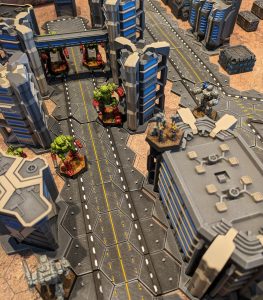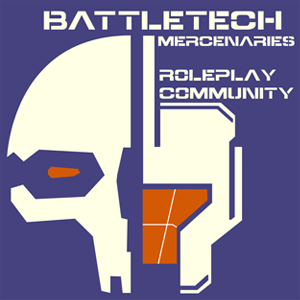Enterprise (WarShip class)
Sarna News

- HEXTECH Review - Wave 3 Brings More Urban Options To Your Battlefield
- Your BattleTech News Round-Up For March, 2024
- Crashing 'Mechs With Jennifer Brozek, Author Of The Rogue Academy Trilogy
- Getting The Word Out With Rem Alternis, Catalyst Community & Marketing Director
- Bad 'Mechs - Yeoman
- Read more →
| 200px | |
| Enterprise | |
| Production information | |
| Manufacturer | Daussault-Shimmon Enterprises, New Earth |
| Introduced | 2749 |
| Production Year | 2745[1] |
| Use | Super Carrier |
| Tech Base | Inner Sphere |
| Technical specifications | |
| Mass | 1,600,000 tons |
| Length | 1,250m |
| Sail Diameter | 1,190m |
| Fuel | 4,500 tons |
| Burn Rate | 39.52 |
| Safe Thrust | 2 g |
| Top Thrust | 3 g |
| Sail Integrity | 7 |
| KF Drive Integrity | 31 |
| LF Battery | Yes |
| Armament | 2 NL35s 10 NL45s 16 NL55s 10 Medium NPPCs 7 Heavy NPPCs 23 AR10s 1 NAC/25 4 NAC/30 4 NAC/35 80 Large Pulse Lasers 80 Anti-Missile Systems |
| Armor | 1,536 tons of Ferro-Carbide |
| DropShip Capacity | 4 |
| Crew | 115 Officers 280 Enlisted/non-rated 100 Gunners 1,944 Bay Personnel |
| Grav Decks | 2x 150m |
| Escape Pods/Life Boats | 640/435 |
| Heat Sinks | 2,988 (5,976) |
| Structural Integrity | 50 |
Description
The Enterprise was one of a kind WarShip and a remarkable failure. It was conceived as a super-carrier by Star League Defense Force staff, determined to avoid the SLDF black water battleships being outclassed by fighter carriers the same way that blue water aircraft carriers had rendered blue water battleships obsolete, the Enterprise was intended to be the last word in super-carriers and a qualitative leap ahead of anything the various Star League member states could field.[2]
While the first draft specifications for the Enterprise called for a million ton ship that could transport three wings of fighters, requirements creep led to multiple specification and design changes, with every major revision bringing a new team of engineers into the mix. Ultimately, at least twelve different firms received payments for producing complete sets of schematics. The end product was a design sixty percent larger than the original concept and capable of carrying almost a thousand AeroSpace Fighters. The first ship of the class was named the Enterprise after a long line of Terran aircraft carriers and would hold eighteen wings of fighters internally.[2]
Despite the prodigious quantity of fighters carried, the Enterprise was intended to be capable of launching a wing every thirty seconds through the fifty-four bay doors; these were all controlled as part of the most complex command and control system every designed for a Star League vessel, located deep in the bowels of the ship and capable of tracking two and a half thousand seperate objects in combat.[2]
The Enterprise finally launched in 2749, almost five years after the programme had been conceived; under the watching eyes of the entire SLDF navy, the ship had to be towed out of her berth by tugs after four hours of repair and modification work failed to determine why the ship couldn't produce enough thrust to leave dock under her own power. The initial tests were abandoned, and subsequent investigation of the plans and designs discovered that as a result of all of the various changes the engines were incapable of working in conjunction with the thruster network - even if the main thrusters could be repaired, the Enterprise would be incapable of maneuvering. The supervising technician, Admiral Ursula Verlander, opted to take early retirement and thereby saved the careers of the other senior figures who had supported the programme. The project was cancelled, and the Enterprise was towed to the asteroid belt and stripped down. Even the bare hulk of the Enterprise was abandoned and left to the predations of scavengers.[2]
Armament
While the Enterprise was categorically a boondoggle, and an embarassing one at that, it did match a large assortment of capital weapons with an innovative system of large pulse lasers and anti-missile systems to prevent the ship falling prey to other carriers or to incoming missiles. The Enterprise also carried 77 missiles in each of three different classes: Barracuda, Killer Whale and White Shark.[2]
Cargo
- Bay 1: Fighters (648), 11 doors
- Bay 2: 288,220.5 tons of Cargo, 2 doors
- Bay 3: Fighters (324), 4 doors
Gallery
- Enterprise WarShip.jpg
References
- ↑ MUL online date for the Enterprise (WarShip class)
- ↑ 2.0 2.1 2.2 2.3 2.4 XTRO: Boondoggles, p. 17, "Enterprise"

